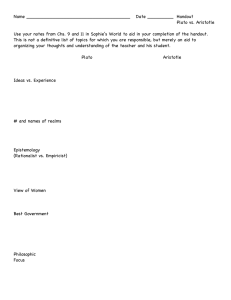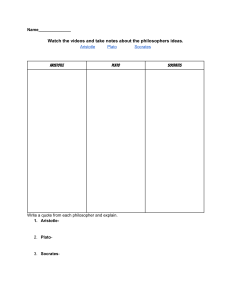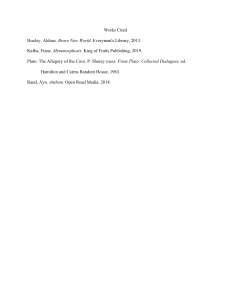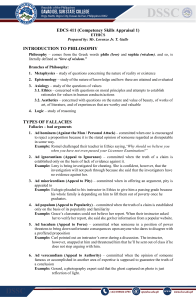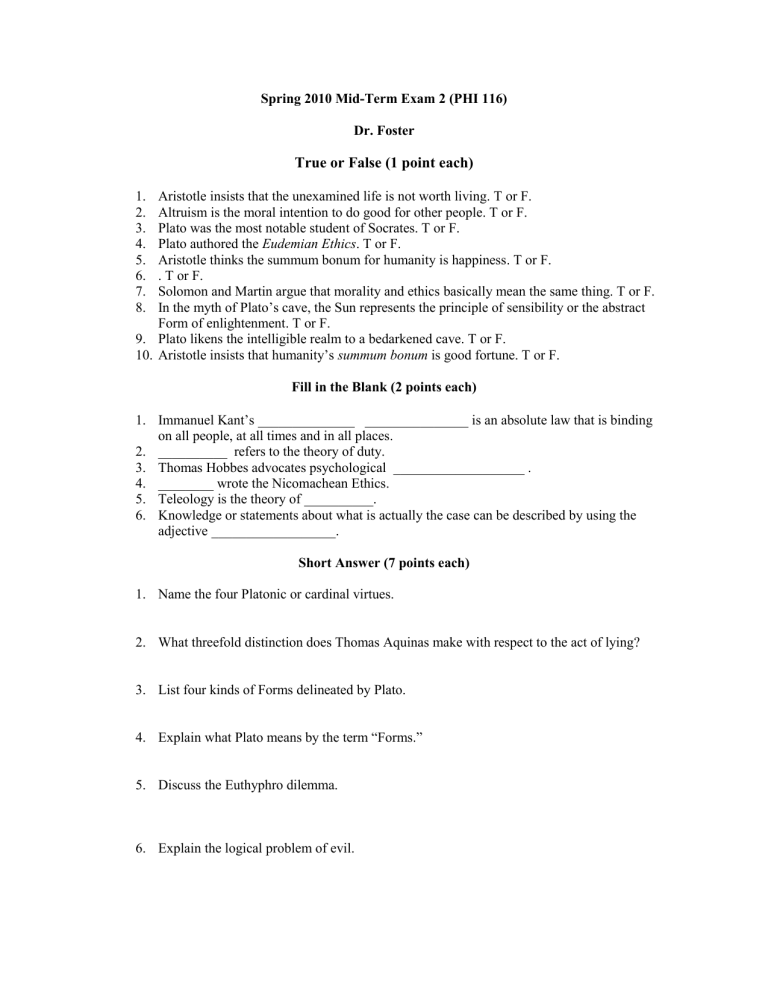
Spring 2010 Mid-Term Exam 2 (PHI 116) Dr. Foster True or False (1 point each) 1. 2. 3. 4. 5. 6. 7. 8. Aristotle insists that the unexamined life is not worth living. T or F. Altruism is the moral intention to do good for other people. T or F. Plato was the most notable student of Socrates. T or F. Plato authored the Eudemian Ethics. T or F. Aristotle thinks the summum bonum for humanity is happiness. T or F. . T or F. Solomon and Martin argue that morality and ethics basically mean the same thing. T or F. In the myth of Plato’s cave, the Sun represents the principle of sensibility or the abstract Form of enlightenment. T or F. 9. Plato likens the intelligible realm to a bedarkened cave. T or F. 10. Aristotle insists that humanity’s summum bonum is good fortune. T or F. Fill in the Blank (2 points each) 1. Immanuel Kant’s ______________ _______________ is an absolute law that is binding on all people, at all times and in all places. 2. __________ refers to the theory of duty. 3. Thomas Hobbes advocates psychological ___________________ . 4. ________ wrote the Nicomachean Ethics. 5. Teleology is the theory of __________. 6. Knowledge or statements about what is actually the case can be described by using the adjective __________________. Short Answer (7 points each) 1. Name the four Platonic or cardinal virtues. 2. What threefold distinction does Thomas Aquinas make with respect to the act of lying? 3. List four kinds of Forms delineated by Plato. 4. Explain what Plato means by the term “Forms.” 5. Discuss the Euthyphro dilemma. 6. Explain the logical problem of evil. 7. What is the difference between natural evil and moral evil? 8. Define the term “justification.” List three ways that one can justify a moral pronouncement. 9. Explain the basic defining features of Hobbesian social contract theory. 10. Explain the difference between res extensa and res cogitans. Define Terms (1 Point each) 1. Ethics 2. Moral relativism 3. Absolute 4. Categorical imperative 5. Utilitarianism 6. Anthropology 7. Descriptive theory 8. Prescriptive theory 9. Metaethics 10. Materialism

